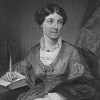
Lana L. Dalley, “On Martineau’s Illustrations of Political Economy, 1832-34″
Harriet Martineau’s conception of fictional and economic discourses as compatible, her confidence that a woman could effectively and authoritatively write about political economy, and Illustrations’ resonance throughout the period mark Illustrations of Political Economy‘s conception, publication, and reception as important events in the history of nineteenth-century literature and culture.
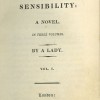
Jill Rappoport, “Wives and Sons: Coverture, Primogeniture, and Married Women’s Property”
Prior to political agitation for the reform of married women’s property laws, nineteenth-century fiction emphasized primogeniture (the common law doctrine of consolidating wealth in the hands of eldest sons) alongside coverture (the common law doctrine that marriage voided a wife’s separate legal identity) in order to show how both contributed to women’s economic marginalization. The reform movement, however, focused its attention on coverture, and by the time of the 1870 Act, fiction begins to divorce its sympathy for women’s subjugation in coverture from its treatment of women’s condition with respect to primogeniture. This case study of novels by Jane Austen and George Eliot suggests that, as coverture comes under closer scrutiny, primogeniture is no longer showcased as one of women’s most significant economic disadvantages. Instead, the claims of primogeniture begin to appear as an argument against women’s rights to property.

Angela Esterhammer, “1824: Improvisation, Speculation, and Identity-Construction”
Literature and cultural history of the year 1824 reflect the prominence of improvisation and speculation as ideologies and modes of action. Both these terms suggest hasty action that lacks a solid or profound basis, that responds to contingencies and constructs its own (pseudo-)reality. This article explores modalities of improvisation and speculation by focusing on the interrelated themes of ephemerality, appearance, and identity-construction in texts and performances of the year 1824, including influential works of poetry and fiction, the burgeoning periodical press, and new forms of theatrical entertainment.

Herbert F. Tucker, “In the Event of a Second Reform”
Between the 1867 passage of the Second Reform Bill and that of the Forster Education Bill in 1870, Britain undertook its modern metamorphosis into an effectively secular and democratic state, in a legislative process concurrently abetted and assessed by contemporary productions in literature. Thick description of this process illustrates by example this entry’s framing questions about the nature and the scale of an “event.”

Andrew Elfenbein, “On the Trials of Oscar Wilde: Myths and Realities”
This essay contradicts myths often found in popular writing about Oscar Wilde: (1) Wilde was an aristocrat; (2) Victorians knew nothing about homosexuality; (3) Wilde was put on trial for being a homosexual; (4) once Wilde was on trial, his conviction was inevitable; and (5) after the trials, Wilde disappeared. It concludes by speculating on future directions for work on Wilde and sexuality.

Pamela K. Gilbert, “On Cholera in Nineteenth-Century England”
This essay will focus on how the British understood and responded to the cholera epidemics that swept Britain four times from the early eighteen-thirties to the mid-eighteen-sixties, with special attention to the first epidemic and how it related to political Reform.
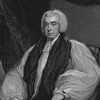
Christopher Lane, “On the Victorian Afterlife of the 1781 Sunday Observance Act”
Proposed in 1780 to “suppress” the rise of Dissenting and freethinking societies, the Sunday Observance Act was passed in 1781 and adopted across Britain that year. In seeking to encourage Sunday worship, the new law aimed to curb Sunday trading and to prevent the public on such days from visiting parks, museums, zoos, theaters, meeting-houses, and concert halls. The interest of this essay lies in the cultural effects of such legislation, as well as in the figure who proposed it, Bishop Beilby Porteus, and the freethinking philosopher, William Nicholson, who is said to have challenged Porteus and Britain’s episcopacy by detailing the law’s and the Bible’s inconsistencies. The pamphlet attributed to Nicholson, though its authorship remains contested, is called The Doubts of Infidels.
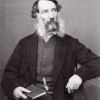
Sarah Winter, “On the Morant Bay Rebellion in Jamaica and the Governor Eyre-George William Gordon Controversy, 1865-70”
In the aftermath of the Morant Bay rebellion that broke out on 11 October 1865, the Governor of Jamaica, Edward John Eyre, ordered extensive and harsh reprisals against Black Jamaicans in the county of Surrey under a period of martial law lasting from 13 October to 13 November. Eyre’s actions provoked widespread controversy among intellectuals, politicians, and the general public in Britain. The Jamaica Committee was organized in December 1865 to monitor the government’s response. After a Royal Commission investigation of the rebellion and its aftermath, Eyre was removed from his post and recalled by the Colonial Office. Led by John Stuart Mill, the Jamaica Committee undertook three attempts between 1866-68 to prosecute Eyre for murder and abuse of power for his role in sanctioning the court martial and execution of George William Gordon, a former slave and Jamaican politician who was accused of fomenting the rebellion. Repeatedly, English grand juries refused to indict Eyre or convict his subordinates. The question of the constitutionality of martial law raised by the Jamaica Committee’s prosecutions implied that taking sides for or against Eyre’s actions was fundamentally an expression of political views about the legal limitations on the use of force in imperial governance. Defending the importance of the constitutional principles at stake in the Jamaica Committee’s unsuccessful prosecutions of Eyre, Mill articulated the duty to uphold the rule of law as a fundamental principle of modern citizenship. The question of the extent of Gordon’s rights as a “fellow-citizen” within the British Empire, however, remained unresolved.

Elsie B. Michie, “On the Sacramental Test Act, the Catholic Relief Act, the Slavery Abolition Act, and the Factory Act”
Examining two sets of intertwined Parliamentary Acts that went into effect before and after the Reform Act of 1832, this entry argues that they make visible the gestures that led up to and resulted from reform.
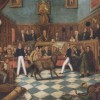
Ivan Kreilkamp, “The Ass Got a Verdict: Martin’s Act and the Founding of the Society for the Prevention of Cruelty to Animals, 1822”
This article presents the history and pre-history of Martin’s Act (1822), “Act to prevent the cruel and improper treatment of Cattle,” and the subsequent founding, in 1824, of the Society for the Prevention of Cruelty to Animals (after 1840, the Royal Society for the Prevention of Cruelty to Animals). It explains and analyzes the late-eighteenth-century and early-nineteenth-century context in which the animal welfare or anti-cruelty movement emerged. It also discusses the failed 1809 Act proposed by Lord Erskine and Richard Martin’s successful 1822 Act, and analyzes the particular role played by ridicule and shifting boundaries of humor in the discourse surrounding human treatment of animals.
